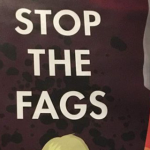Controversial Bill “Zoe’s Law” Passes NSW Lower House

Unborn babies are now on the way to having separate legal recognition to their mothers after a controversial bill passed the lower house of the NSW Parliament last week. Under the bill, known as Zoe’s Law, defendants could for the first time be prosecuted for grievous bodily harm against a fetus older than 20 weeks, or weighing more than 400g.
Background of Zoe’s Law
Zoe’s Law is named after the unborn child of Central Coast resident Brodie Donegan, who was eight months pregnant when she was hit by a vehicle in 2009. Her baby was subsequently stillborn. Charges of grievous bodily harm were brought against the driver for the injuries to Ms Donegan, but the driver couldn’t be charged over the death of the unborn baby, as a foetus is not recognised as being a separate living person under current law.
Why is this law controversial?
MPs were given a conscience vote on the bill, and it passed the lower house 63 to 26. Although the bill passed, it is has stirred up controversy surrounding the issue of women’s reproductive rights.
A number of parties, including women’s rights groups and the NSW Bar Association, are concerned that the bill could potentially lead to restrictions on women’s access to abortion, or make a woman liable for charges of harm to her own unborn child.
In a recent letter to Liberal MP Chris Spence, the Central Coast MP who drafted and proposed the bill, the Bar Association raises two main issues. The first is that the definition of an unborn child for the purposes of criminal law is arbitrary, and could lead to significant discrepancies in sentencing.
The association argues that there is little separating a 20-week-old fetus from one that is 19 weeks and six days, but that the difference of a day in gestation or a gram in weight could potentially lead to a 25-year difference in an offender’s sentence.
The other main concern raised by the Bar Association involves the wider implications of the law, and the view that while the current proposal only suggests recognising a fetus as having separate rights for the purposes of a charge of grievous bodily harm, in the future it could lead to other charges such as murder or manslaughter – which has implications for late-term abortions and medical procedures.
According to a report from the ABC, the majority of female frontbenchers opposed the bill in the lower house. Mr Spence reportedly told parliament the bill would not involve prosecutions over lawful abortion procedures, but Labor MP Carmel Tebbutt said that despite amendments, Zoe’s Law didn’t do enough to ensure the protection of women’s reproductive rights.
Zoe’s Law will be strongly debated when it goes to the upper house next year, and it is anticipated that it will be harder to pass there than in the lower house.
If Zoe’s Law does become part of NSW legislation in the future, it will mean that anybody who has been involved in an accident or assault involving a pregnant woman could face two charges of grievous bodily harm instead of one – one charge for the mother-to-be and an additional charge for the unborn child.






